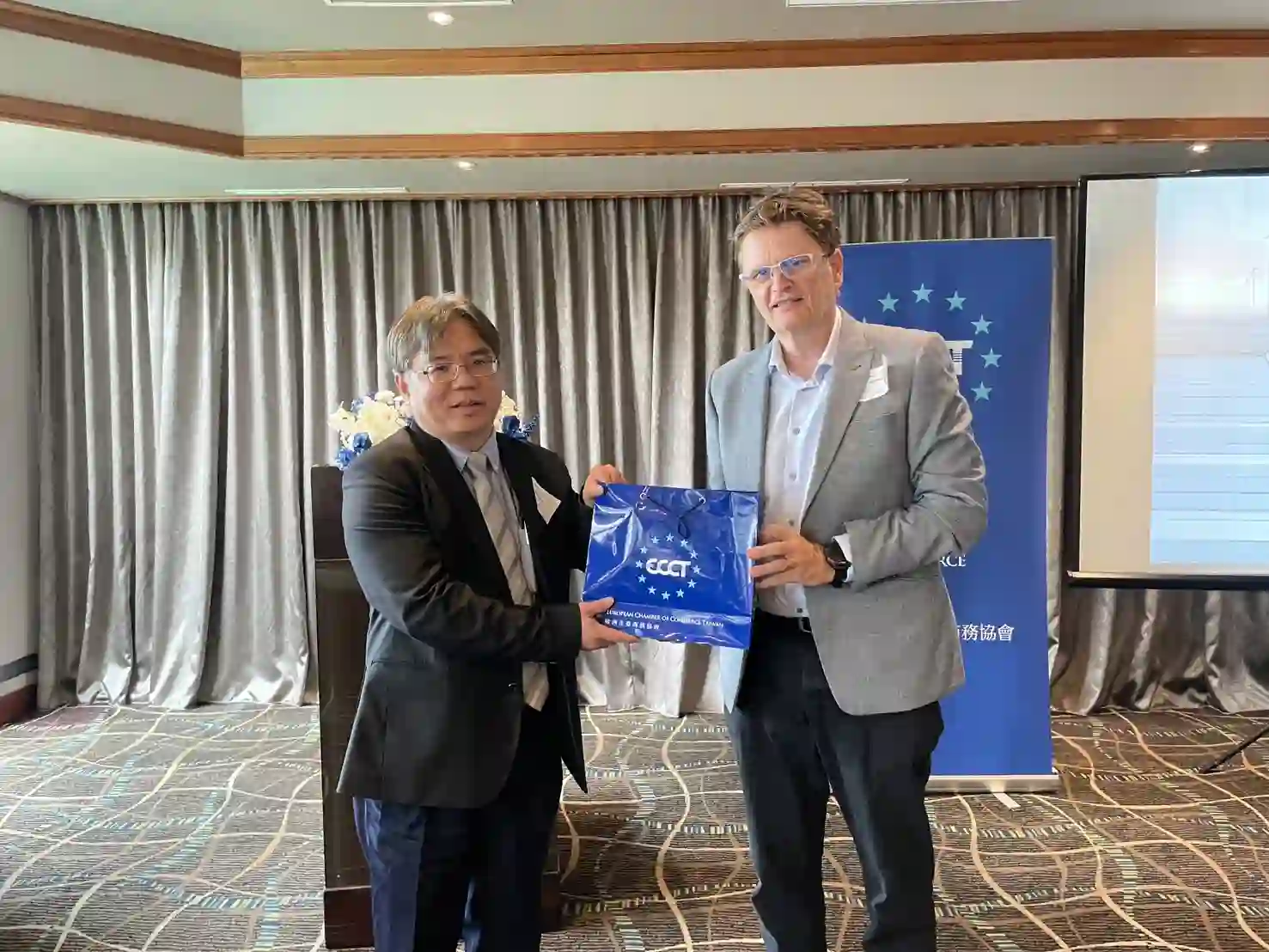ECCT Taiwan Emphasizes the Importance of Stakeholder Engagement in Renewable Energy Projects
ECCT Taiwan Emphasizes the Importance of Stakeholder Engagement in Renewable Energy Projects

(Left) Chen Chung-Hsien, Director,
Renewable and Prospective Energy Development Division,
Energy Administration, Ministry of Economic Affairs (MOEA)
(Right) Niels Steenberg, Co-Chair of ECCT Wind Energy Committee
The European Chamber of Commerce Taiwan (ECCT) has underscored the significance of stakeholder participation in renewable energy projects. Today (5th), ECCT released the "Taiwan Renewable Energy Industry Challenges - Best Practice Report for Stakeholder Engagement and Permitting." The Stakeholder Working Group compiled this report under the ECCT Wind Energy Committee, which consists of 33 industry experts from 27 domestic and international companies and organizations.
The report provides analysis and recommendations on improving the permitting process and stakeholder communication for renewable energy projects in Taiwan.
During today's luncheon, members of the Wind Energy Committee shared key findings from the report with chamber members and government guests. Government officials attending the meeting included Chung-Hsin Chen, Director of the Energy Technology Division Bureau of Energy, MOEA; Jin-Sheng Su, Director of the Office of Energy and Carbon Reduction, EY, and Meng-Yu Tsai, Director of the Department of Environmental Protection.
Over the past decade, Taiwan has made significant progress in developing renewable energy projects. Furthermore, the 2019 revision of the Renewable Energy Development Act enshrined the goal of achieving a renewable energy capacity of 27 GW by 2025 into law. However, as of 2024, Taiwan has not met this goal and has since revised it downwards. Industry stakeholders have pointed out that, in addition to other challenges, Taiwan's green energy market lacks robust standards and best practice examples for stakeholder engagement in renewable energy projects. The overly complex permitting process also increases market risks and hinders Taiwan's energy transition.
Based on a thorough analysis of the Taiwan market and current regulatory environment, the report outlines the challenges faced by the industry and examines international best practices, standards, and relevant academic reports to provide specific recommendations for accelerating Taiwan's green energy development.
The report also suggests that regulatory authorities should offer stronger guidelines and resources for stakeholder communication in renewable energy projects, including clearly defining stakeholders and the processes for their engagement. It emphasizes that effective stakeholder communication should be integrated throughout the entire lifecycle of renewable energy projects, from planning to execution and operation.
The research findings indicate that certain aspects of the permitting process lack clear interpretation, objectivity, and efficiency, leading to increased risks for related projects. This impacts project timelines and international investors' assessment of the Taiwan market. The report advocates for adopting best practice examples from countries such as the United Kingdom, Denmark, and Germany, by establishing clearer guidelines and further simplifying the permitting process for renewable energy projects.
ECCT reiterates that successfully promoting green energy is in the best interest of the public, government, and industry. Therefore, both public and private sectors must work collaboratively and proactively to achieve common goals. The purpose of publishing this report by the European Chamber of Commerce Taiwan is to foster constructive dialogue among government, political parties, and public stakeholders to promote cooperation between public and private sectors. This collaboration aims to address current challenges, achieve the shared goal of expanding and accelerating renewable energy promotion in Taiwan, and ultimately attain Taiwan's energy and net-zero targets.
Related Reference:
The ECCT issues "Taiwan Renewable Energy Industry Challenges / 臺灣再生能源產業之挑戰" report
